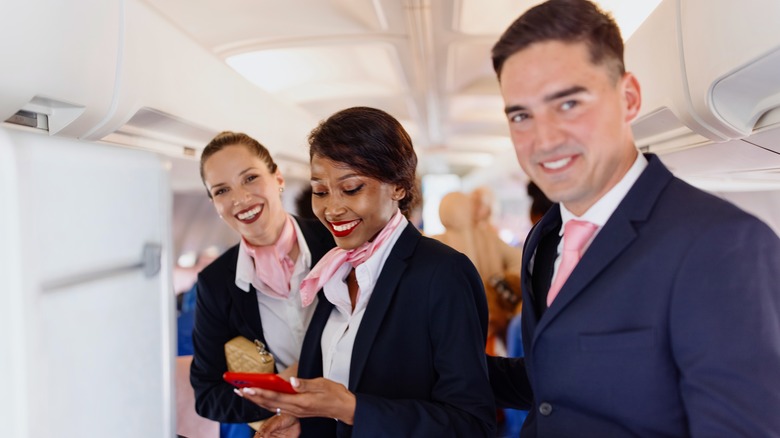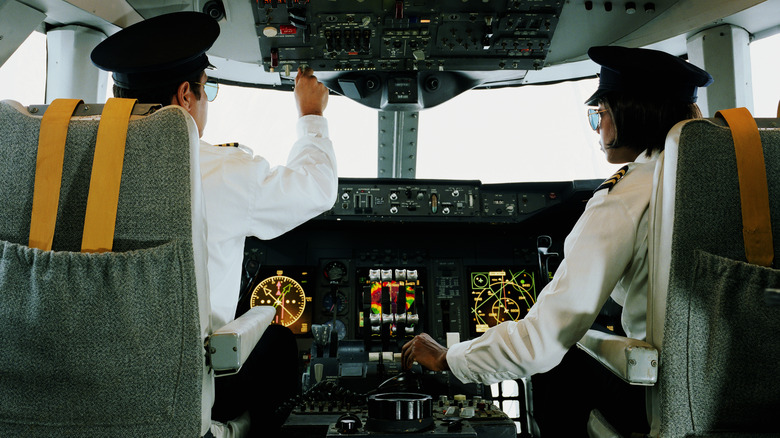The Odd Reason A Whole Country Hopes To Ban Perfume For Pilots And Flight Attendants
A stinky seatmate can make a flight even more uncomfortable than the cramped space or the crying infants. Airlines know this, which is why passengers can actually get kicked off a plane just for smelling bad. While the biggest culprits may be severe gas and other unpleasant body odors, anyone who's endured a flight next to someone wearing too much perfume knows that bottled fragrances, too, can take their toll.
However, that's not the reason why one country hopes to ban the use of perfume and cologne among its pilots and flight attendants. In late 2023, India's Office of the Director General of Civil Aviation proposed a rule against using fragrances containing alcohol as a precaution when administering alcohol breathalyzer tests. According to CNN, the new guideline states, "No crew member shall consume any drug/formulation or use any substance such as mouthwash/tooth gel/perfume or any such product which has alcoholic content. This may result into positive breath analyzer test."
Can perfume really affect an alcohol test?
There's little evidence proving whether alcohol-based perfumes can create a false positive during an alcohol breath test, but some experts believe it's entirely possible. Terri Daniel, an attorney in Texas, claims on their website that wearing perfume, cologne, hand sanitizer, bug spray, and even aftershave could trigger a positive test result, even if you never had a sip of alcohol.
Similarly, a 2018 study published in the journal Current Pharmaceutical Biotechnology revealed that regularly wearing alcohol-based perfumes can trigger false positives in hair tests, where ethyl glucuronide (a marker of alcohol consumption) levels are measured in hair strand samples. Even if the aviation industry doesn't typically rely on hair tests (the tests detect alcohol exposure over multiple months, which doesn't help determine if a pilot or flight attendant is currently under the influence), the study is a reminder that fragrances may alter biomarkers over time.
Heavy drinking among aviation workers is a serious offense
Alcohol use among flight attendants and pilots is a serious matter, and a positive test result — whether a false positive or a legitimate one — can result in significant consequences. Although flight attendants are at increased risk of alcohol misuse (American Addiction Centers reports that alcohol-related deaths are 2.5 times more common among flight attendants than the general population, per a National Institute for Occupational Health and Safety study), drunkenness is strictly banned on the job. In 2019, a United Express flight attendant was fired from her position and charged with a misdemeanor after passing out during a flight. When she was given a breathalyzer test, the result was five times the legal limit for airline workers.
Intoxicated pilots can pose an even greater threat to public safety, which is why their punishments can be even stronger than those handed to flight attendants. In 2023, a United Airlines pilot had his license suspended, given a six-month suspended prison sentence, and charged a hefty fine after getting drunk while visiting Paris, France, before manning a flight.
If you or anyone you know needs help with addiction issues, help is available. Visit the Substance Abuse and Mental Health Services Administration website or contact SAMHSA's National Helpline at 1-800-662-HELP (4357).


